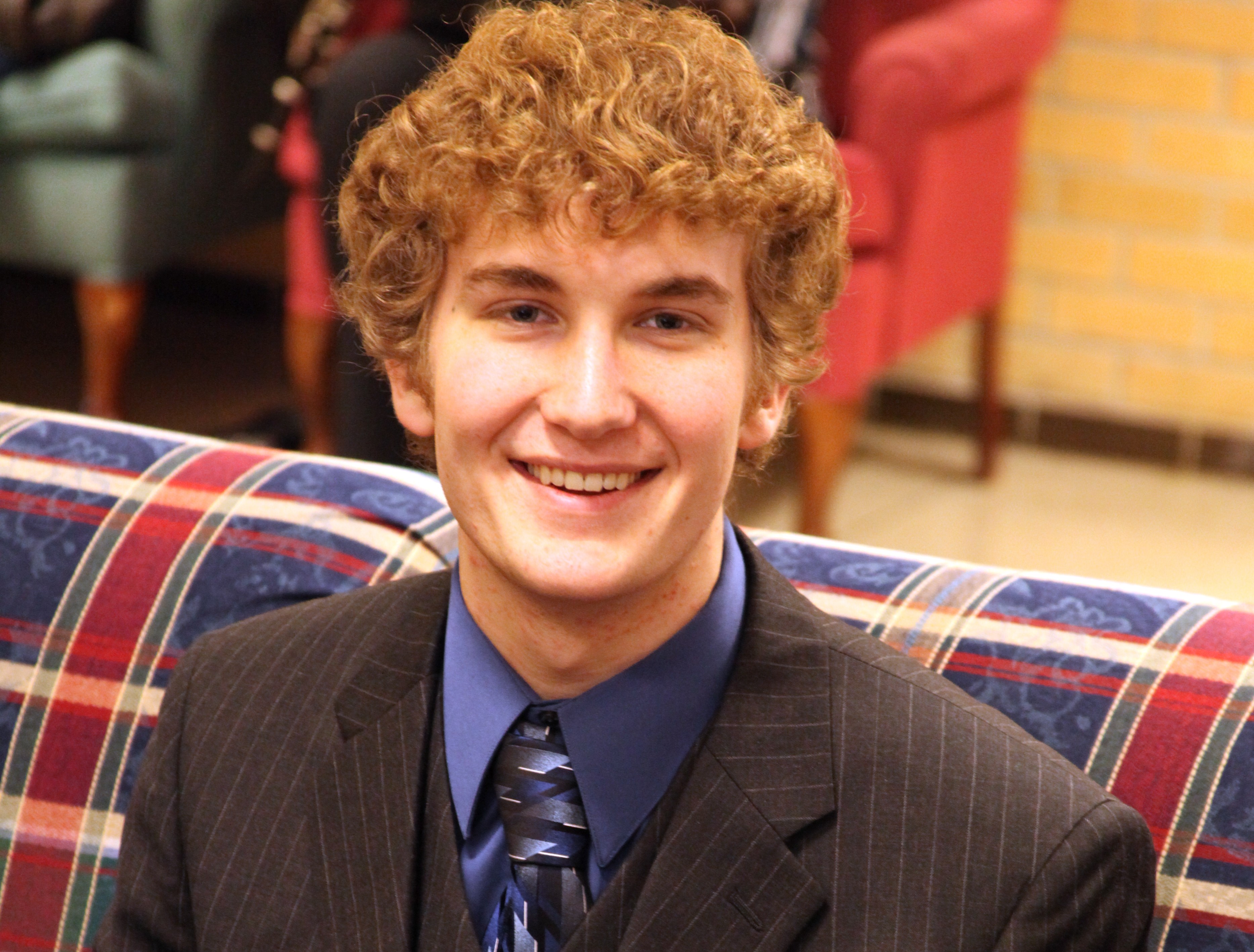Education is an essential part of college, but students also learn about themselves and society. For most students, going to college is their first time growing roots away from the comforts of family. Picking a college is one of the largest decisions young adults have to make, and prospective student Andrew Alness from Mound, Minn., is in the middle of that process.
Alness first heard about Concordia through a friend, and like many students, he is primarily drawn to campus because of the music program, he said. He is in choir, vocal jazz, and show choir in high school, and he plays violin in his church’s orchestra. He also attended the All State Choir camp at Concordia the summer of 2009, where he practiced in Hvidsten, stayed in freshmen housing and ate in Anderson Commons for a week.
“It sounds cliché, but the food is great,” he said. “I wouldn’t feel so bad leaving mom’s cooking to come here. I’d have to be careful not to gain the freshmen 15, or 50.”
Alness has also been successful academically. He has taken several Advanced Placement courses, he is vice-president of Student Senate and president of the high school’s chapter of the National Honor Society, and he has done it all while maintaining a 4.0 GPA, he said. The Credo program is a draw as well, he said.
“It sounds like a cool opportunity to be able to take classes that are taught by two professors from different schools of thought,” he said. “I feel like it would give you a very interesting and more open understanding of the topics that you cover.”
The college has recognized his talent in and out of the classroom. Alness and his parents, Cindy and Richard, came to campus for the on-campus audition and interview as a semifinalist for both a Music Performance Scholarship and the academic Regent’s Scholarship.
Alness is not alone as a semifinalist for a music or academic scholarship. The number of semifinalists is too large for one group of faculty members to conduct all of the interviews or auditions.
In an effort to provide uniformity and fairness to the interview process, faculty members are given instructions about the process, length of interview and questions from a list, according to Polly Kloster, chair of the nursing department and a faculty interviewer.
“They want it to be pretty objective,” Kloster said.
Interviewers receive a list of questions they can choose from, but they are instructed to use the same questions for each student so responses can be compared among the group of students the faculty member interviews, Kloster said.
“There’s as much reliability as there can be with multiple people across campus interviewing in different ways,” Kloster said. “But at least we’re all asking the same questions.”
Alness noticed the list of questions during his interview.
“Yes, there’s room for subjectivity, but I think it’s fairly unbiased,” he said. “It’d be pretty difficult to have the same set of people interview every single candidate.”
A grading rubric is used to score responses based on articulation and relevance to the question, Kloster said. Responses that only partially address the question or are phrased with poor grammar can negatively affect the score.
“It doesn’t have to be my answer,” Kloster said. “It is individual, that’s the key thing. It needs to be their response.”
Passion, completeness of answer and thoughtfulness of reflection contribute to the scoring, Kloster said.
“I love when they’re so passionate about Concordia, whatever the reason is,” Kloster said. “I see them kind of light up when they talk about those things.”
Alness likes many other things about Concordia that are not necessarily top priorities, like Caribou coffee at the Coffee Stop, not having classes in May and the emphasis on studying abroad, he said.
“I enjoy traveling…studying in other locations gives you a wider view of the world, a new culture to experience and different viewpoints,” he said. “They all lead to a better, more varied education.”
Concordia is not the only college Alness is considering, but each college emphasizes academics, music, community and faith, or a combination of the four, he said.
“They’re all small, private schools where I know I’ll be able to be unique and not just fit in with the crowd,” he said.
Kloster has never interviewed a nursing student for an academic scholarship, and she appreciates the opportunity to connect with the larger student body.
“It gives me an opportunity to touch-base with students outside of the [nursing] major,” Kloster said. “It’s fun to hear why they come to campus.”
Alness likes the small-town feel of Moorhead and the proximity to the bigger city of Fargo, he said.
“Everyone’s really nice,” Alness said. “Plus, some of them have really Minnesotan accents. I like them because my accent isn’t super Minnesotan.”
Vocal auditions are held before a panel, and René Clausen, conductor of The Concordia Choir, was among the three faculty members in Alness’ room.
“I got a little nervous when I saw that it was him, but it was pretty cool,” Alness said. “It was a lot of fun, and it went really well.”


